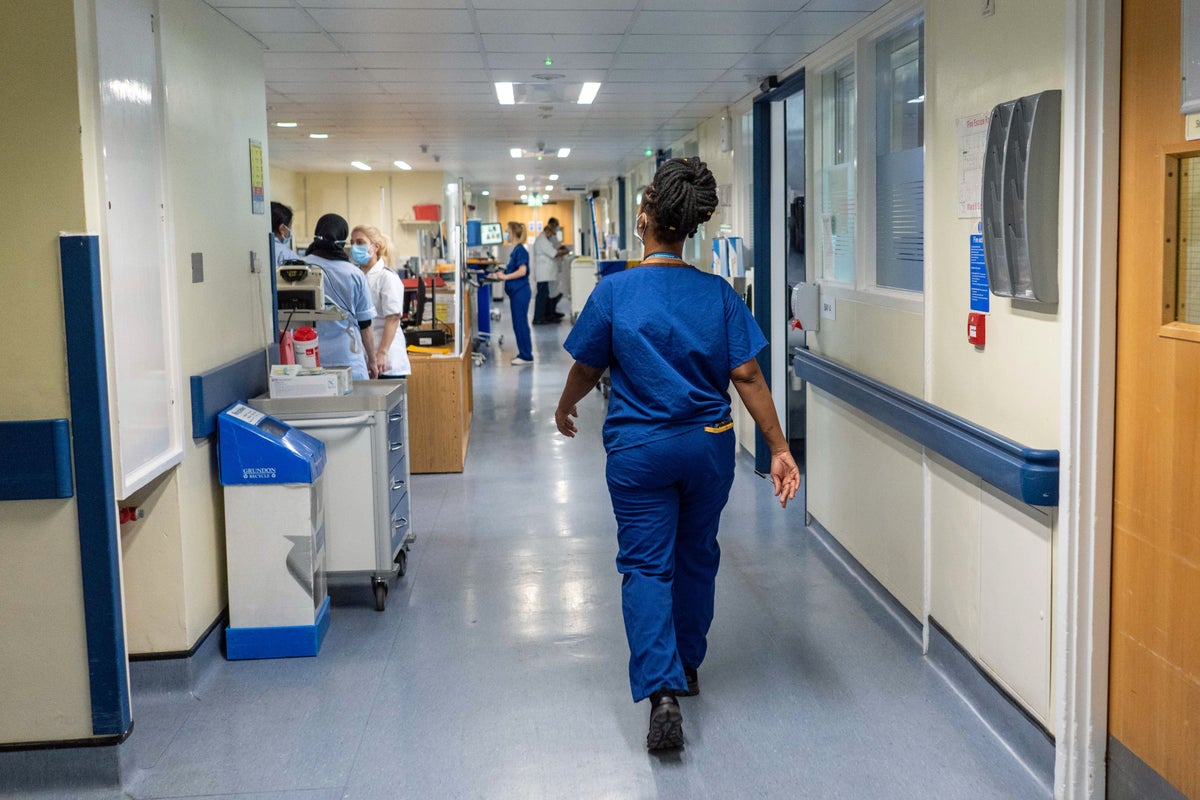
Guidance on how doctors should behave in work has been revised for the first time in a decade, outlining new standards on sexual harassment, whistleblowing and bullying to ensure staff “feel supported to speak out”.
The General Medical Council (GMC) has published its new good medical practice guidelines, which sets out standards of patient care and professional behaviour expected of all medical professionals.
Its predecessor came into force in April 2013 and the new standards will be implemented from January 2024 after a five-month familiarisation period for staff.
Among the changes is guidance on sexual harassment, which has been included by the regulator for the first time as part of a “zero tolerance” approach.
It said doctors “must not act in a sexual way towards colleagues with the effect or purpose of causing offence, embarrassment, humiliation or distress”.
This includes verbal or written comments and displaying or sharing images, as well as physical contact.
It adds to existing guidelines that medics must not act in a sexual way towards patients or use their position to pursue “sexual or improper” relationships.
The 2013 guide also placed a duty on all doctors to raise concerns about patient safety, but the 2024 document places emphasis on doctors in leadership and management conditions to create a culture in which staff feel safe to speak out about concerns.
There have been calls to overhaul the NHS whistleblowing system in the wake of the Lucy Letby trial after it emerged senior doctors had raised concerns about the child killer but were ignored by hospital bosses.
Dr Naru Narayanan, president of the Hospital Consultants and Specialists Association (HCSA), said whistleblowers “are treated by bad employers like the problem” and can “find themselves on the receiving end of threats and bullying to remain silent”.
Where workplace cultures of this kind of behaviour go unchecked, they are detrimental to wellbeing, performance and patient safety— Prof Dame Carrie MacEwan
Elsewhere, the new publication said doctors who witness bullying or discrimination to “do something about it” such as challenging the behaviour, reporting it in line with workplace policies and offering support to the victim.
Professor Dame Carrie MacEwen, chairwoman of the GMC, said: “Sexual harassment, bullying and discrimination are entirely unacceptable.
“Where workplace cultures of this kind of behaviour go unchecked, they are detrimental to wellbeing, performance and patient safety.
“Doctors are increasingly, and bravely, speaking out about it, and as a regulator, it is important we leave no doubt that such behaviour has no place in our health services.”
Dame Carrie added that those who experience harassment or bullying “must feel supported to speak out” by employers, managers and colleagues”.
There is no place for these abhorrent behaviours in UK medicine and they bring shame to the profession— Tim Mitchell, Royal College of Surgeons of England
Publication of the new guide was welcomed by chief medical officer for England Professor Chris Whitty, who said it “emphasises how supportive workplaces are essential for patient care as well as clinical staff”.
The measures will come into force from January following a five-month familiarisation period for staff.
Tim Mitchell, president of the Royal College of Surgeons of England, added: “There is no place for these abhorrent behaviours in UK medicine and they bring shame to the profession.
“We need to be creating a work environment where every person feels welcome, safe and protected. The GMC’s new standards send a strong message to the profession that these behaviours will not be tolerated.”
However, the Medical Defence Union (MDU) said doctors are “concerned about digesting and implementing new standards”.
We are calling on employers to ensure they give medical professionals time to digest (the new guidelines) and the GMC to do all they can to make sure doctors can easily understand the main changes— Dr Caroline Fryar
A survey of 610 medics carried out by the organisation found the majority (96 per cent) had made use of existing guidelines during their career and 62 per cent found them useful.
When asked about the new standards, just 15 per cent said they were confident they could be delivered in their work environment, while 68 per cent said they were “unsure”.
Some 49 per cent said they were confident they would have time to fully absorb the document before it is implemented, with 69 per cent planning to read it in their own time outside of work.
Dr Caroline Fryar, MDU director of medical services, said good medical practice “goes to the very heart” of the profession.
“The standards have been substantially revised for the first time in a decade,” she added.
“We are calling on employers to ensure they give medical professionals time to digest it and the GMC to do all they can to make sure doctors can easily understand the main changes.
“Doctors shouldn’t be getting homework at a time when they are already working incredibly hard, around the clock, to deliver safe and effective patient care.”
Prof Phil Banfield, chairman of the council at the British Medical Association (BMA), said it is “crucial” the guidance “lays out robust and achievable standards rather than aspirational standards that doctors may fail to reach through no fault of their own”.
He added: “While many of the updates are reasonable on an individual level when placed in the context of an extremely challenging health service – navigating chronic under-resourcing and the biggest backlog in the history of the NHS – doctors are rightly concerned that this will simply extend opportunities for individuals to be scapegoated when services (and the systems behind them) fail to meet the needs of patients.
“Doctors come to work to do the best job we can to care for our patients, and the GMC should not underestimate the impact that systemic pressures and failures have on doctors’ ability to provide safe care.”







